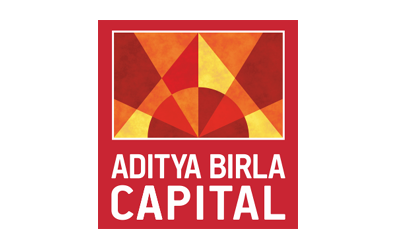Claims Process
To register a claim, please follow one of the following:
Call us at : Toll Free in India 1800 270 7000
(10 AM- 7 PM on all days)
Outside India: : +918045860777
Email us at :
[email protected]
SMS : : “OPTIN” at 567679
Visit Online at : www.adityabirlasunlifeinsurance.com
Whatsapp On : +91 8828800040
Missed Call Services : Select services like fund value, premium amount and premium due date can be availed by giving us a missed call at +91 7676690033
Write to us at : Policy Services, One World Center Tower 1,
16th Floor, Jupiter Mill Compound,
841, Senapati Bapat Marg, Elphinstone Road,
Mumbai - 400013
What are the documents required to process an online death claim?
The documents required to process the claim are based on the cause of death are:
- Medical Cause of Death Certificate
- Death Certificate
- Claimant’s ID PAN card
- Claimant’s Address proof
- Cancelled cheque of claimant
- Claimant’s photograph
Notes: Any document uploaded should be self-attested by the claimant. ADITYA BIRLA SUN Life may further call for documents apart from the above (case specific).
Who is a Nominee? At time of death claim intimation, if there is no nominee or in case of unfortunate demise of nominee what are the documents required?
Nominee is the person appointed at time of policy issuance for receiving the benefits of insurance policy. In an event the nominee is a minor, the benefits would be received by appointee mentioned at time of policy issuance.
We require court issued proof of title/succession certificate. This condition is referred to as “Open Title Case”.
What is a Death Certificate? What is a Medical Cause of Death Certificate?
Document issued by the Government to the nearest relatives of the deceased, stating the date, fact and cause of death. Document issued by a Medical Practitioner/Hospital certifying the deceased state of a person
What is termed as Natural Death?
Death occurring in the course of nature and from natural causes (as age or disease) as opposed to accident or violence.
What are the things that I must take care while uploading the documents?
Kindly make sure of the following while uploading documents:
- Make sure documents uploaded are clear
- Claimant should be equal to nominee
- Claimant’s Name on PAN should match with the name on cheque
- Do not sign across account number and IFSC
Is NEFT mandatory for all claims?
As per the IRDAI circular no. IRDA/F&A/CIR/GLD/056/02/2014 dated February 13, 2014, all payouts made to customers need to be in the electronic form. Hence, NEFT details of the customers are mandatory to process the claim payouts.
- NEFT payments would be made only in Indian Saving Bank Accounts or NRO Accounts.
- Cheque would be issued if payment has to be deposited in NRE Account.
What all documents are acceptable ID proof and address proof?
| Document |
Identity Proof |
Address Proof |
| PAN Card |
√ |
|
| Passport |
√ |
√ |
| Voter’s Identity Card issued by Election Commission of India |
√ |
√ |
| Permanent Driving License |
√ |
√ |
| Aadhaar Card |
√ |
√ |
| Identity card with applicant’s photograph issued by Central/State Departments, Statutory/Regulatory Authorities, Public Sector Undertakings, Scheduled Commercial Banks, Public Finance Institutions |
√ |
|
| Letter issued by a gazette officer, not more than 6 months old, mentioning the address along with a duly attested photograph of the person |
√ |
√ |
| Bank account statement / Passbook not older than six months as on date of acceptance (If it contains photograph) |
√ |
√ |
| Documents (not more than 3 months old) issued by Government departments of foreign jurisdiction and letter issued by Foreign Embassy or Mission in India (If it contains photograph) |
√ |
√ |
| Central KYC identifier (can be accepted, if there is no change in current address of client) |
√ |
√ |
By when will the claim be settled?
| Turn Around Time as mandated by Insurance Regulation and Development Authority of India (IRDAI) |
Death Claims |
Health Claims |
| Raising Claim Requirements |
Within 15 days of receipt of claim. |
Within 15 days of receipt of claim. |
| Settlement or Rejection or Repudiation of claims wherein Investigation is not required |
Within 30 days from the date of receipt of last necessary document. |
Within 30 days from the date of receipt of last necessary document. |
| Settlement or Rejection or Repudiation of claims wherein Investigation is required |
Investigation should be completed not later than 90 days from the date of receipt of claim intimation and the claim shall be settled within 30 days thereafter. |
Investigation should be completed not later than 30 days from the date of receipt of last necessary document and the claim shall be settled within 45 days from the date of receipt of last necessary document. |

